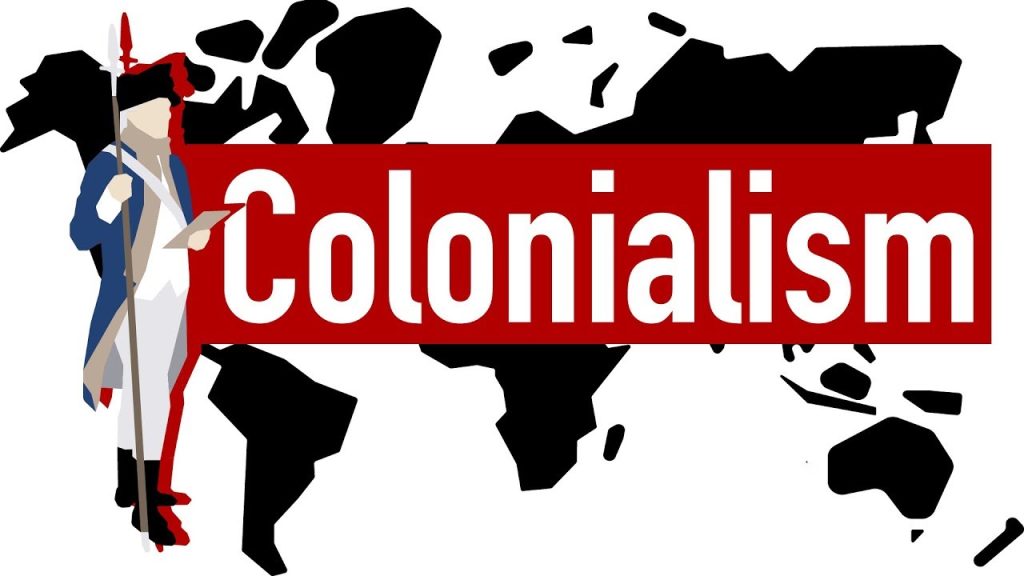Some of the links in this article are "affiliate links", a link with a special tracking code. This means if you click on an affiliate link and purchase the item, we will receive an affiliate commission.
The price of the item is the same whether it is an affiliate link or not. Regardless, we only recommend products or services we believe will add value to our readers.
By using the affiliate links, you are helping support our Website, and we genuinely appreciate your support.
Colonialism is the practice or policy of one country establishing and maintaining control over another territory, often by settling its own population there and exploiting the resources, economy, and labor of the colonized area. This control typically involves political domination, cultural influence, and economic exploitation. Colonial powers often justify their actions through ideologies of racial or cultural superiority, and the impact of colonialism has historically led to profound social, economic, and political changes in the colonized regions, often with long-lasting negative effects such as economic inequality, loss of cultural identity, and political instability.
Colonialism can take various forms, each characterized by different methods of control and influence. Some of the types include:
1. Direct Colonialism
- In direct colonialism, the colonizing power establishes full political and administrative control over a territory. The local government is often replaced or heavily influenced by the colonizer’s officials, and the economy is structured to benefit the colonizer. This form typically includes military presence and settler colonies, where the colonizing power sends its citizens to live and rule over the native population.
- Examples: British rule in India, French control over Algeria.
2. Indirect Colonialism (Protectorates and Puppet Governments)
- In indirect colonialism, the colonizing power exerts control through local rulers or a puppet government that appears to be autonomous but is heavily influenced or controlled by the colonizer. This allows the colonizing power to maintain dominance without full administrative intervention.
- Examples: British control in parts of Africa through local chieftains; Soviet-backed governments during the Cold War. Travancore under British Era
3. Economic Colonialism (Neocolonialism)
- In this form, the colonizer controls the economy of the territory without direct political or military control. Multinational corporations, trade agreements, and foreign investments are used to exploit the resources and labor of a country, often leaving it economically dependent on the colonizing power. including Money Pegging
- Examples: Post-independence control of resources in African countries by former colonial powers, the dominance of Western corporations in developing economies.
4. Military Colonialism
- This type involves the use of military force to establish and maintain control over a foreign territory. Military colonialism often involves the stationing of troops in strategic areas, the suppression of local rebellions, and the use of force to secure economic or political interests.
- Examples: The U.S. military presence in the Philippines after the Spanish-American War, French and British military actions in the Middle East. U.S. military presence in Middle East
5. Settler Colonialism
- In settler colonialism, large numbers of people from the colonizing country migrate to the colonized territory, often displacing the indigenous population and establishing permanent settlements. These settlers often control the government, economy, and society, while the native population is marginalized or oppressed.
- Examples: European colonization of North America, Australia, Palestine and South Africa .
6. Cultural Colonialism
- This form involves the imposition of the colonizer’s language, religion, and cultural practices on the colonized people, often erasing or devaluing the native culture. Cultural colonialism can be subtle but deeply influential, with long-term effects on identity, language, and education.
- Examples: The spread of Western education and Christianity in Africa and Asia during European colonization.
7. Settler Neo-Colonialism
- In cases where former colonies gain political independence, the original colonizing population may still hold significant economic, political, or social power. This results in continued dominance even after formal colonization has ended.
- Examples: White settler control in post-apartheid South Africa.
8. Colonialism through International Aid (Dependency Colonialism)
- Sometimes, powerful countries use military aid or economic assistance as tools to exert influence over weaker nations. In exchange for aid, the receiving country may be forced to adopt policies, governance systems, or economic arrangements that favor the interests of the donor country.
- Examples: U.S. military and economic aid to countries during the Cold War to gain geopolitical influence.
These forms of colonialism have shaped global history, and their impacts can still be seen in many modern political, economic, and social systems around the world.



